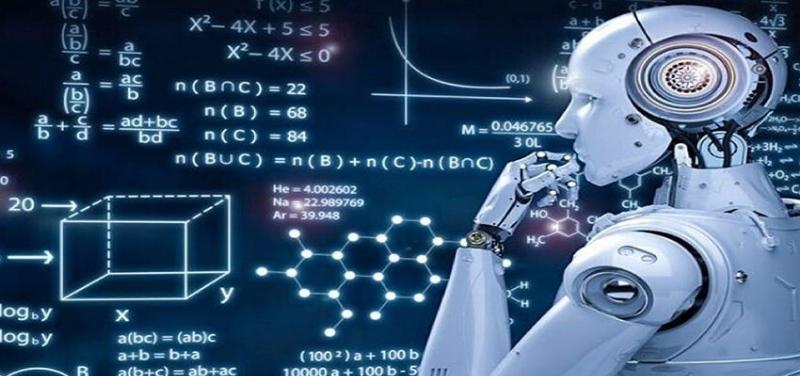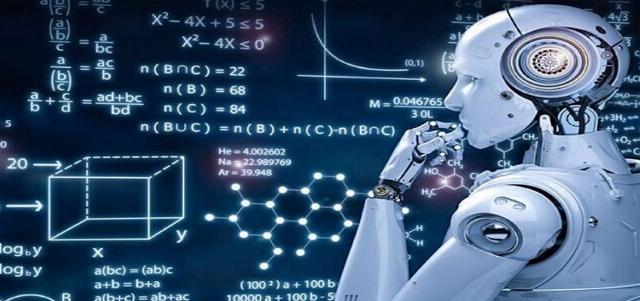


The word on the street is that AI and machines will take over and destroy the job market. My reaction to this sentiment is exactly what jobs AI and machines will take over, from whom, and when this catastrophe is going to happen? Taking over jobs and destroying the economy has never been anything that a machine has been able to do, unless we have conquered scarcity as a society, which I do not believe we have or will be able to accomplish anytime soon. So, what is AI, and machines taking over? I see AI and robotics taking over the jobs that humans no longer want to do, or in many cases employers must implement AI robotics out of drastic measures when marginal costs exceed marginal revenues. The question becomes what kind of work humans want to do, and what jobs they are willing to cede to AI and robotics. Put another way, automatic elevators did not replace human elevator operators simply because companies loved replacing human labor with automation; nor did the app economy destroy the taxi ridesharing industry that we all love so much.
Yes, industries shift labor around, adjust wages, and reallocate people toward higher-earning jobs, but AI and machines cannot take over jobs, unless you cede. Every time a machine or AI takes a job, another is replaced with something that has more consumer demand. Looking at it this way, scarcity is a good thing. However, we never ask why AI-enabled machines can replace human jobs in the first place. The common assumption is that the sinister employer is replacing people with AI robots because they can. It is not necessary to throw the baby out with the bathwater, if we start off with an assumption that the employer likes machines over humans. The employer may love humans, but not at the expense of profit margins. Likewise, employees want to maximize their growth potential and their pockets. It is not true that employers love machines more than humans. It is not true that employers love new shiny robotics because they do not call out of work or take more time off than permitted. The employer considers how to reduce costs and pass the savings on to the consumer, while employees focus on maximizing their own benefits.
 Let us consider robotic job replacement from an employer’s perspective. Let's be honest -- people flee dying industries as if from a plague. Because of this, employers’ struggle to find human employees who are unwilling to forgo higher wages in growing industries, which is more often when companies’ marginal revenue exceeds marginal costs. On the other side of the equation, job preferences influence an employer’s decision to pay robots. For starters, young adults are not going into some professions and often thumb their noses at starter jobs, which most of us had at the outset of our careers. These job preferences create ripple effects across all markets and industries. For example, AI and robotics are not taking tobacco-producing and manufacturing jobs; people have quit smoking. AI did not take over telephone operator jobs; people no longer need to call for an operator to assist with a phone call. What about mining? There are miners out there doing the work, but AI and robotics augment them, as many young professionals do not seek mining jobs. AI or machines did not eliminate media and print publishing; readers' preferences have changed over time, the same way we (I mean in this in a general sense) have acquiesced to lower expectations of customer service. As we can see, AI and robotics cannot eliminate jobs that expand or change over time, as demand never stops. We all need and want things that change the algorithm of society. As the saying goes, when one door closes, another one opens; the same holds true in the marketplace, where one job ends, another begins, and the same is true of whole industries.
Let us consider robotic job replacement from an employer’s perspective. Let's be honest -- people flee dying industries as if from a plague. Because of this, employers’ struggle to find human employees who are unwilling to forgo higher wages in growing industries, which is more often when companies’ marginal revenue exceeds marginal costs. On the other side of the equation, job preferences influence an employer’s decision to pay robots. For starters, young adults are not going into some professions and often thumb their noses at starter jobs, which most of us had at the outset of our careers. These job preferences create ripple effects across all markets and industries. For example, AI and robotics are not taking tobacco-producing and manufacturing jobs; people have quit smoking. AI did not take over telephone operator jobs; people no longer need to call for an operator to assist with a phone call. What about mining? There are miners out there doing the work, but AI and robotics augment them, as many young professionals do not seek mining jobs. AI or machines did not eliminate media and print publishing; readers' preferences have changed over time, the same way we (I mean in this in a general sense) have acquiesced to lower expectations of customer service. As we can see, AI and robotics cannot eliminate jobs that expand or change over time, as demand never stops. We all need and want things that change the algorithm of society. As the saying goes, when one door closes, another one opens; the same holds true in the marketplace, where one job ends, another begins, and the same is true of whole industries.
Take, for instance, the restaurant service and the ridesharing sector, where AI-powered machines take food orders and payments, and even drive taxis (in some states), are being automated by robots and machines because humans are fleeing from and going into industries that are perceived to be more lucrative, or newer industries.
We must understand scarcity. Clearly, we do not understand the universal law of scarcity, because if we did, there would be no presumption that AI robots could or should eliminate human job functions and capacities. Lucky for us humans, we have not overcome scarcity as a society, and if we did, what an achievement that would be -- everyone's needs and demands would be satisfied. Everyone could get whatever they want, whenever they want it. Wow! What a novel idea, but it has not happened and never will, and that is a good thing if we do not want robots and AI to take over.
If we are all bound by the economic law of scarcity, there is no need for humans to fear the takeover of AI and robotics. This fundamental economic problem ensures that there will always be a demand for human labor, as there will always be tasks and jobs that machines and AI cannot perform. So, rest assured, the future is not about robots and AI taking over human skills and tasks that humans can do. They take over what we do not want to do.
Image: RawPixel.com
